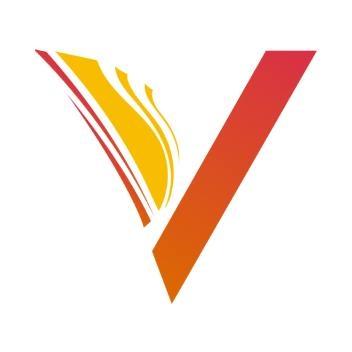Global Residential Mortgage Loan Market Surges as Housing Demand and Interest in Homeownership Rise
The Residential Mortgage Loan Market is undergoing a significant transformation, driven by rising urbanization, evolving homeownership trends, and favorable government initiatives. With an increasing number of consumers aspiring to own residential properties, mortgage loans continue to be the primary financial vehicle enabling real estate access for the masses.
According to Dataintelo’s comprehensive research, the global residential mortgage loan market was valued at approximately USD 12.4 trillion in 2022, and it is projected to reach USD 21.8 trillion by 2032, growing at a CAGR of 5.7% during the forecast period. The consistent demand for housing, coupled with digital innovations in mortgage processing, is accelerating market expansion globally.
Technological advancements, such as AI-driven loan approvals and paperless documentation, are improving borrower experiences and lender efficiency. These developments are enabling faster turnaround times and reducing operational costs, making mortgages more accessible to a broader consumer base.
👉 Request a Sample Report:
https://dataintelo.com/request-sample/477633
Key Drivers Fueling Residential Mortgage Loan Market Growth
The growth of the residential mortgage loan market is being propelled by several influential factors:
Urbanization and Population Growth: Increasing populations in urban areas have heightened demand for housing, leading to a surge in mortgage applications.
Low-Interest Rate Environments: In recent years, several economies have maintained historically low interest rates, making borrowing more attractive.
Government Incentives and Subsidies: First-time homebuyer programs, tax rebates, and affordable housing schemes are incentivizing consumers to invest in residential properties.
In addition, the emergence of online mortgage marketplaces and digital underwriting platforms is simplifying the loan acquisition process for both lenders and borrowers, increasing accessibility across regions.
Restraints and Challenges Facing the Market
Despite favorable conditions, the residential mortgage loan market is not without challenges:
Economic Volatility: Rising inflation, currency fluctuations, or economic downturns can influence borrower confidence and lending criteria.
Interest Rate Hikes: Any upward revision in policy rates by central banks can lead to higher borrowing costs, slowing down loan uptake.
Credit Risk and Default Rates: Financial institutions remain cautious about loan approvals in high-risk segments due to concerns about borrower solvency.
Additionally, regulatory requirements and credit scoring mechanisms vary across countries, adding layers of complexity for lenders operating in multiple jurisdictions.
👉 View Full Report:
https://dataintelo.com/report/global-residential-mortgage-loan-market
Market Opportunities on the Horizon
While challenges exist, several emerging trends and opportunities are set to shape the future of the residential mortgage loan market:
Digital-First Lending Platforms: Fintech integration into mortgage processes is improving transparency, reducing approval times, and increasing customer satisfaction.
Conclusion
The residential mortgage loan market is a vital component of the global economy, enabling millions to achieve homeownership while driving construction, real estate, and financial services sectors. As the market continues to evolve with the help of digital technology and regulatory innovation, both consumers and institutions stand to benefit from enhanced access, speed, and transparency.
Backed by favorable macroeconomic factors and a strong demand pipeline, the residential mortgage loan sector remains one of the most resilient and opportunity-rich financial segments in today’s evolving landscape.
Stay ahead with actionable insights and reliable data—only at Dataintelo.
Global Residential Mortgage Loan Market Surges as Housing Demand and Interest in Homeownership Rise
The Residential Mortgage Loan Market is undergoing a significant transformation, driven by rising urbanization, evolving homeownership trends, and favorable government initiatives. With an increasing number of consumers aspiring to own residential properties, mortgage loans continue to be the primary financial vehicle enabling real estate access for the masses.
According to Dataintelo’s comprehensive research, the global residential mortgage loan market was valued at approximately USD 12.4 trillion in 2022, and it is projected to reach USD 21.8 trillion by 2032, growing at a CAGR of 5.7% during the forecast period. The consistent demand for housing, coupled with digital innovations in mortgage processing, is accelerating market expansion globally.
Technological advancements, such as AI-driven loan approvals and paperless documentation, are improving borrower experiences and lender efficiency. These developments are enabling faster turnaround times and reducing operational costs, making mortgages more accessible to a broader consumer base.
👉 Request a Sample Report: https://dataintelo.com/request-sample/477633
Key Drivers Fueling Residential Mortgage Loan Market Growth
The growth of the residential mortgage loan market is being propelled by several influential factors:
Urbanization and Population Growth: Increasing populations in urban areas have heightened demand for housing, leading to a surge in mortgage applications.
Low-Interest Rate Environments: In recent years, several economies have maintained historically low interest rates, making borrowing more attractive.
Government Incentives and Subsidies: First-time homebuyer programs, tax rebates, and affordable housing schemes are incentivizing consumers to invest in residential properties.
In addition, the emergence of online mortgage marketplaces and digital underwriting platforms is simplifying the loan acquisition process for both lenders and borrowers, increasing accessibility across regions.
Restraints and Challenges Facing the Market
Despite favorable conditions, the residential mortgage loan market is not without challenges:
Economic Volatility: Rising inflation, currency fluctuations, or economic downturns can influence borrower confidence and lending criteria.
Interest Rate Hikes: Any upward revision in policy rates by central banks can lead to higher borrowing costs, slowing down loan uptake.
Credit Risk and Default Rates: Financial institutions remain cautious about loan approvals in high-risk segments due to concerns about borrower solvency.
Additionally, regulatory requirements and credit scoring mechanisms vary across countries, adding layers of complexity for lenders operating in multiple jurisdictions.
👉 View Full Report: https://dataintelo.com/report/global-residential-mortgage-loan-market
Market Opportunities on the Horizon
While challenges exist, several emerging trends and opportunities are set to shape the future of the residential mortgage loan market:
Digital-First Lending Platforms: Fintech integration into mortgage processes is improving transparency, reducing approval times, and increasing customer satisfaction.
Conclusion
The residential mortgage loan market is a vital component of the global economy, enabling millions to achieve homeownership while driving construction, real estate, and financial services sectors. As the market continues to evolve with the help of digital technology and regulatory innovation, both consumers and institutions stand to benefit from enhanced access, speed, and transparency.
Backed by favorable macroeconomic factors and a strong demand pipeline, the residential mortgage loan sector remains one of the most resilient and opportunity-rich financial segments in today’s evolving landscape.
Stay ahead with actionable insights and reliable data—only at Dataintelo.

